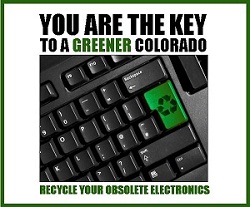Electronics Recycling a Booming Industry
Dallas Morning News (TX) (07/17/13) Torralva, Krista M.
Electronics recycling is now the fastest-growing segment of the U.S. scrap recycling industry, valued at $20.6 billion, up from less than $1 billion in 2002, according to ISRI. The number of employees in the U.S. electronics recycling industry increased from 6,000 in 2002 to 45,000 in 2011. Factors contributing to the industry’s growth include an upsurge in the consumption of electronics, the impact of state laws and recycling programs, and investment in equipment and technology. For example, at Forth Worth, Texas-based Innovative Electronics Recycling, workers start dismantling computers and TVs at about 3 a.m. and send them through shredders to separate materials for recycling or reuse. Precious metals such as gold, copper, and aluminum are among the materials extracted. “I wanted to find a business that not a lot of people are in and a service that we could provide,” says Chase Hinsey, who launched the company in 2010. Innovative Electronics employs about 30 people, and he intends to hire about 10 more people in the next few weeks. ISRI president Robin Wiener says more than 4.4 million tons of electronics was recycled or reused in 2011 nationwide, but an estimated 2 million tons of obsolete electronics each year remains stored in peoples’ homes or is buried in landfills. Wiener notes that the majority of obsolete electronic products that enter the recycling stream come from businesses, while only a quarter of recycled electronics come from residential consumers.
